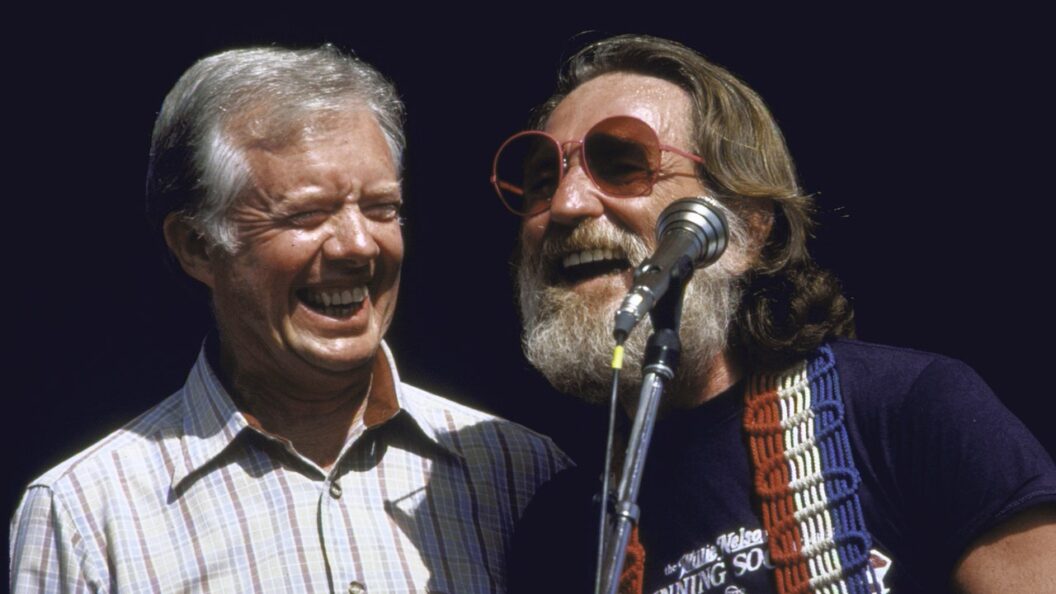Jimmy Carter: A Legacy Of Humanity, Music, and Peace
James Earl "Jimmy" Carter Jr., the 39th president of the United States, passed away at the age of 100, as confirmed by the Carter Center. He had been in hospice care since February 2023, before the death of his wife, Rosalynn Carter, in November 2023. The announcement marks the end of a significant era in American politics and sheds light on the enduring legacy of a leader deeply committed to humanitarian causes.
A Son’s Tribute
In a heartfelt statement, one of Carter’s sons, James Earl "Chip" Carter III, described his father as a “hero” who stood for peace, human rights, and “unselfish love.” Chip emphasized that their family shared Carter with the world through common beliefs that unite humanity. His reflections on his father’s impact highlight the president’s universal approach to human dignity and connection.
A Musical Connection
Carter’s affinity for music is a notable aspect of his life and presidency, serving as a powerful cultural instrument during a time of political disarray. Born into a peanut-farming family in rural Georgia, he maintained a lifelong relationship with music, engaging with prominent artists like Willie Nelson, Bob Dylan, and the Allman Brothers. His appreciation was not merely leisure; it was intertwined with his political identity and strategy—offering a platform for genuine human connection amidst the tumult of the post-Nixon era.
As noted in the 2020 documentary Jimmy Carter: Rock & Roll President, music was an essential part of his governance. Carter celebrated the cultural significance of music, using it to create dialogues with constituents and colleagues alike. His approach capitalized on music’s ability to evoke emotions, foster community, and transcend societal divisions.
Musical Roots in a Cultural Revolution
Carter’s musical passion began in his youth, influenced by gospel music that surrounded him in church. He referred to gospel as "rural music," encompassing both Black and white traditions and expressing “pain, longing, searching, hope, and faith.” His musical upbringing paralleled his political journey amidst the civil rights movement—a defining context in which he opposed segregation as a white politician in Georgia.
By the early 1970s, as Carter rose within the New South movement, Georgia was recognized as a vibrant center for iconic musicians, including James Brown, Ray Charles, and Otis Redding. The Allman Brothers, known for their integration of rock and rhythm and blues, resonated with Carter’s beliefs about music’s power to blur societal lines. His stance against racial discrimination was clear during his gubernatorial inauguration in 1971 when he proclaimed, “The time of racial discrimination is over.”
Carter’s Enduring Influence
Carter’s presidency reached beyond traditional political agendas to encompass a broader, more inclusive vision of America. His commitment to music mirrored his belief in the universal rights of individuals and their expression. In celebrating culture, he reinforced the potential for music to unite and empower people across diverse backgrounds.
In conclusion, Jimmy Carter’s legacy is multifaceted, characterized by a commitment to humanitarianism, civil rights, and an undying love for music. As the music industry reflects on his life, the ethos Carter espoused—unity through shared musical experiences—urges a continued dialogue about the role of music in nurturing humanity. The impact of his leadership during challenging times remains relevant today, reminding us that music can be a bridge for understanding and respect in an increasingly divided world.
For those interested in honoring his musical legacy, it can be explored further in the documentary Jimmy Carter: Rock & Roll President, which articulates the intertwining of his life and music throughout his extraordinary journey.









